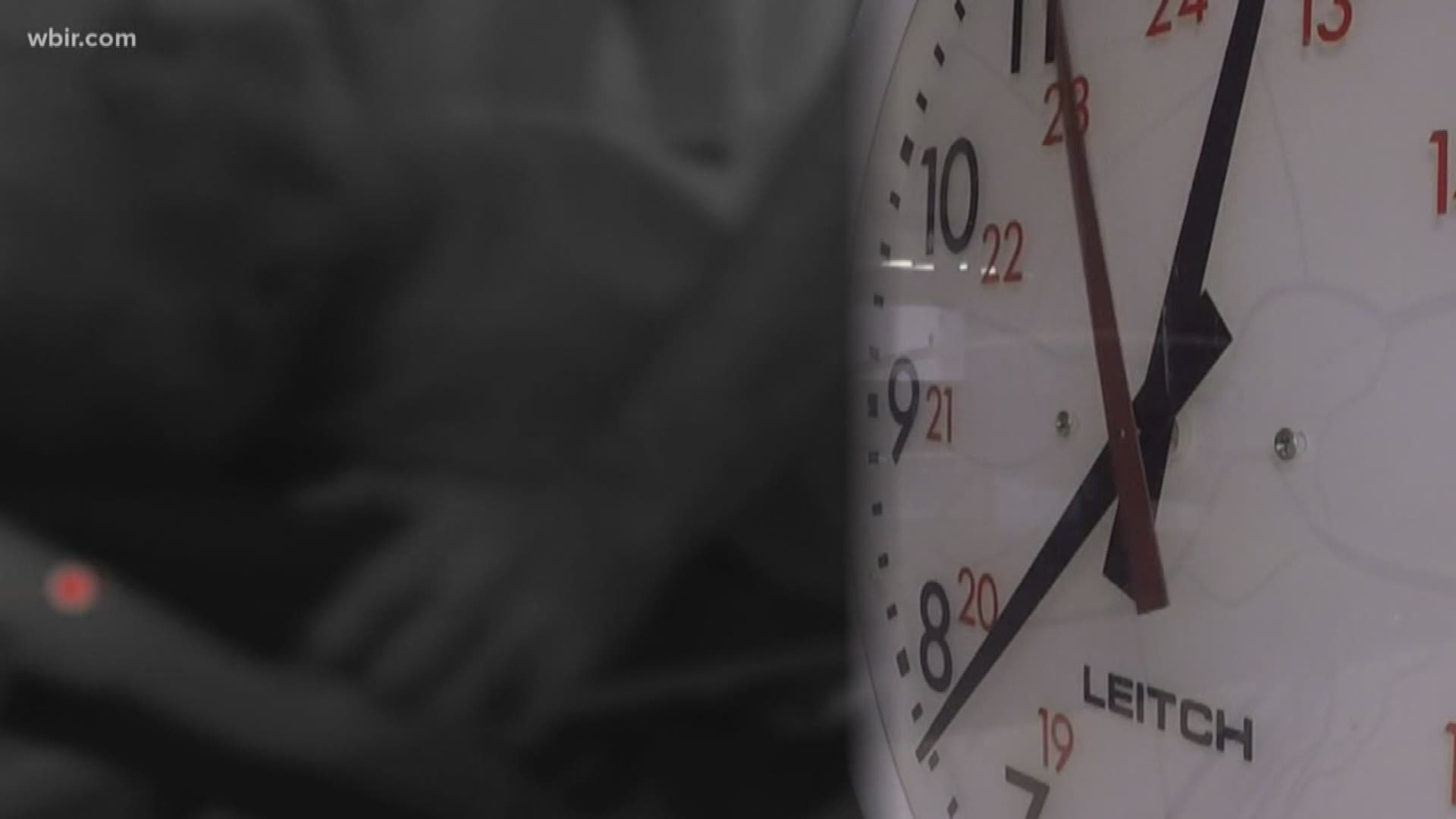KNOXVILLE, Tenn. — Daylight Saving Time officially ended Sunday morning. Falling back means you got an extra hour of sleep, but it also means less daylight.
Health professionals and studies claim falling back and springing forward can actually affect your health.
While time changes for Daylight Saving Time happen while we're asleep, the effects really show their face when we hit that alarm clock button in the morning.
Dr. Bob Overholt with the Allergy, Asthma and Science Center explained people need adequate sleep to function properly.
"We need sleep," Overholt said. "If we don't get sleep, everybody has medical problems."
Overholt said time changes can really mess up your internal clock or circadian rhythm.
"When we get an hour's extra sleep in the winter months of the year, we wake up and it may still be dark," Overholt explained. "It's gonna be dark in the winter, and it may be dark when we go to bed. That confuses the body."
He said there are steps you can take to remedy that, though.
"Be sure that you're going to bed where you can get 7.5 hours of sleep. Number two, wake up to light."
He recommends an alarm clock with a light that mimics a sunrise.
"The human body was made to go to sleep when it gets dark, wake up when it gets light," Overholt noted.
People typically have more health risks when we spring forward compared to when we fall back.
Studies from the University of Michigan say losing an hour of sleep actually increases your risk for heart attack and stroke.
"Now, the reason that is because when we don't wake up at the right time, when our circadian rhythm doesn't act right, then the body tries to protect itself," Overholt detailed.
Less daylight in the colder months could lead to feeling sluggish and Seasonal Affective Disorder, but there are ways to counteract that.
"If we take Vitamin D in the winter, 1,000 international units every day in the winter months of the year, then it may help us with our circadian rhythm," Overholt said.
He said it's important to get that deep, REM sleep to really recover. It's especially important after time shifts like Daylight Saving Time.
RELATED: 10Listens: Despite Tennessee's new Daylight Saving Time law, we still fall back on November 3

